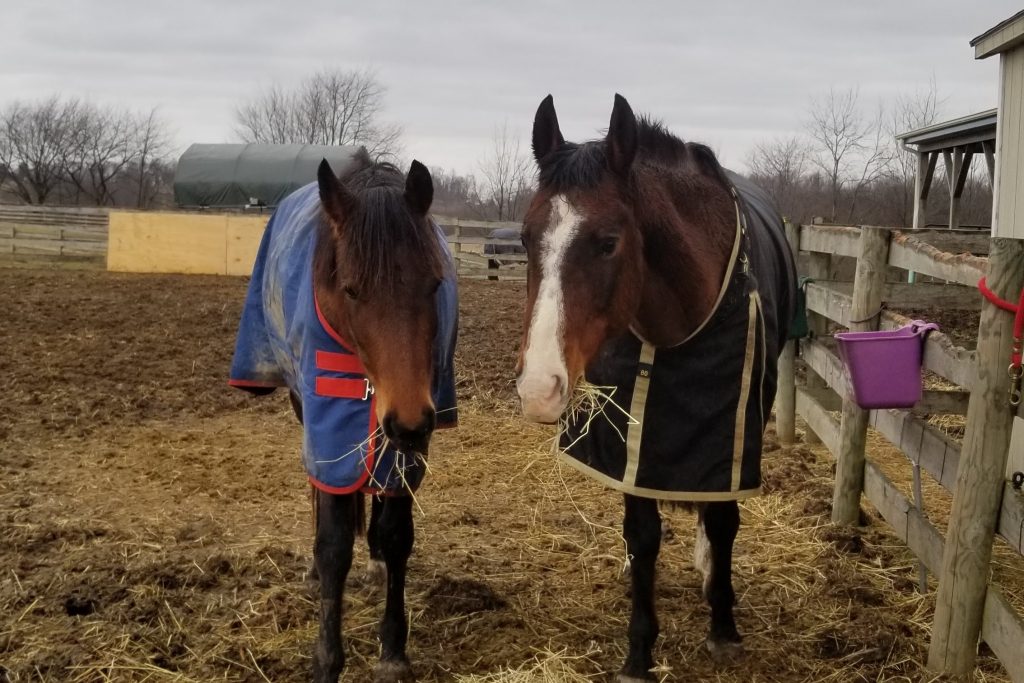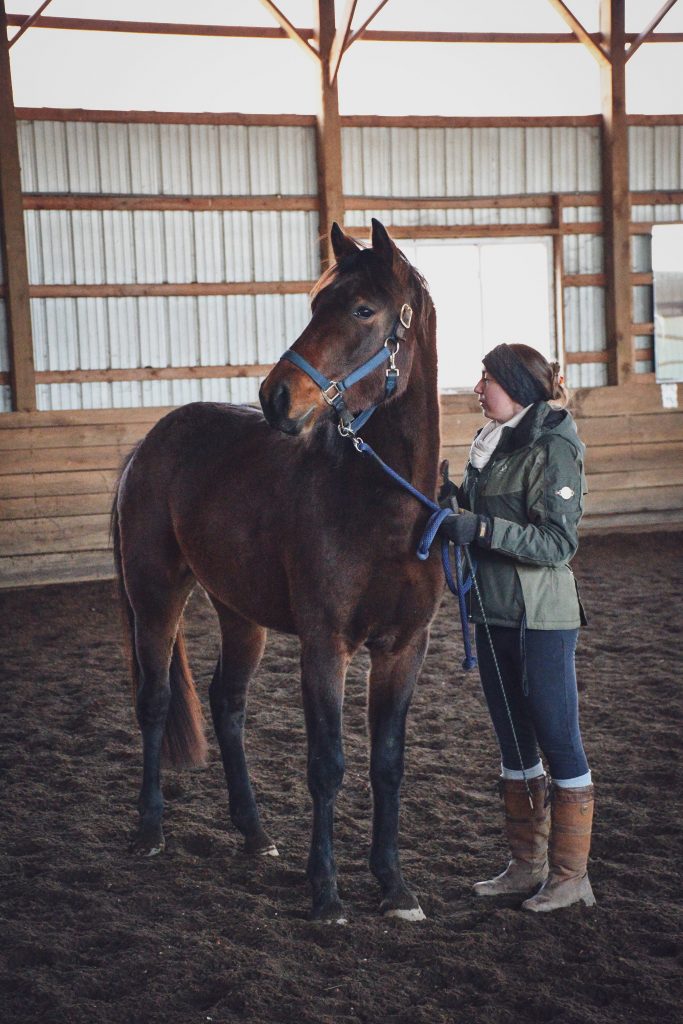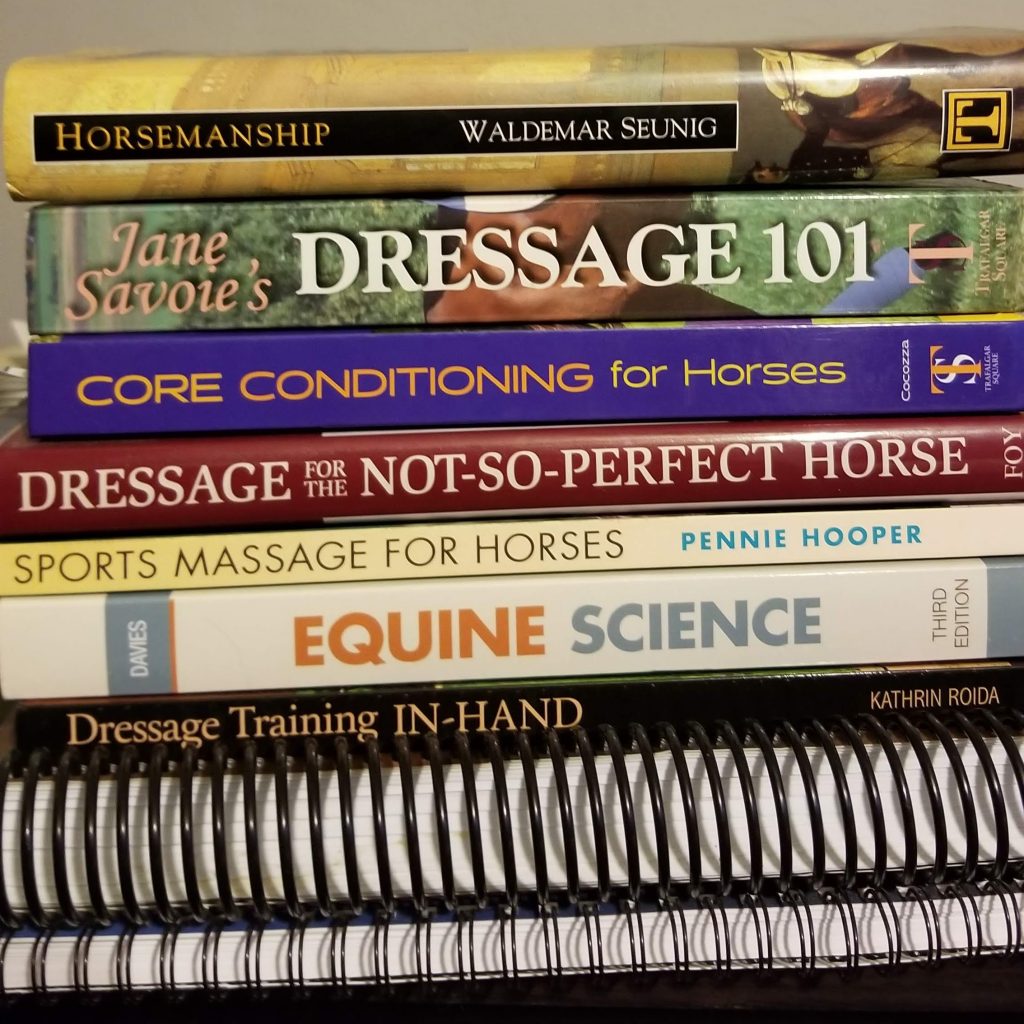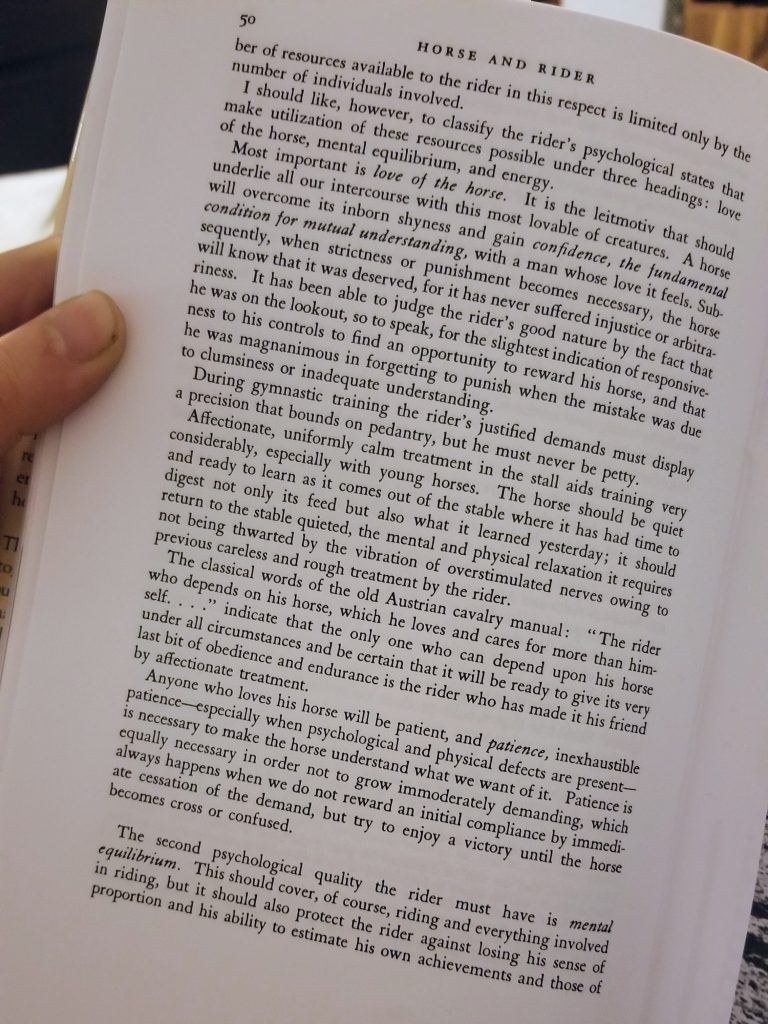Eight weeks ago, when I moved Lucy to a boarding barn, I had plenty of plans for what she was going to learn next. With access to an indoor arena and lights making it possible for me to work with her in the short, dark days of winter, I thought she’d progress even more rapidly than she did in her first 12 weeks with me.
Not. So. Much.

I don’t want to say ‘things quickly unraveled,’ but they pretty much did. My once sweet and mild mannered filly was a little overwhelmed by the hustle and bustle of a training barn with 30 horses and all the equipment that comes with it. The arena I dreamed of working in became a terrifying death trap in her mind, and we had to make a quick exit anytime another horse entered. Some days she still had her stop, go, and turn buttons and other days she was a terrified mess. Some days I was proud that I could lead her down a very steep hill in the dark and the wind and other days I had to ask myself, ‘am I in the mood to almost die today?’

Photo credit: Kate Rebecca Photography
After a particularly traumatizing day involving two geldings in turnout charging at her (because I was stupid enough to try to lead her past two geldings in turnout), then being cornered between a dump truck and a tractor while on crossties, followed by a flock of chickens flying into her face, she was fried. I drove home feeling utterly defeated and wondered if the poor little thing would ever let me catch her again after everything I put her through. I felt lost, not sure what to do next. I was plagued with self-doubt, able to convince myself that every move I made was wrong. To leave her in the field and forget about it was to avoid and ignore the problem. To bring her out and confront the scary world was overfacing her. I convinced myself I didn’t know her well enough to know what the answer was, and each day when something went wrong, as it inevitably would, I told myself it was proof that I was making the wrong choice day after day.
All of this came, of course, in a super fun string of windchills in the teens kind of days. It came on the heels of an abscess for her and for her overly-attached and over bearing pasture mate, the infamous Charlie Brown. It occurred when real-life and my day job were approaching that nearly unmanageable level of crazy that makes you want to just stay home and hibernate. Lucky for me, that’s never an option though. Barn girls don’t get nights off, not when horses need to be fed and hoses thawed to fill up ice-crusted water buckets. So night after night I went to the barn anyways. On nights I didn’t want to do anything with her, I at least did something. I insisted on manners coming in and out of the gate. I picked up that foot she didn’t want to give me. I tried to show her that clippers aren’t that scary. But night after night, I kicked myself for not doing more, for letting all those weekly and monthly goals written on my calendar just slip by.
Despite the frozen mud under my feet, I was feeling spring creeping up and beyond that, the summer show season I had been dreaming about. I started whining to my friends and my husband about it (Sorry, Krissy. Sorry, Art.) and as I heard myself whining and making all of my excuses, I realized that Lucy’s lack of confidence had been wearing off on me. It was supposed to be the other way around. I was supposed to be the fearless leader making this baby horse feel more confident, yet in the ways that animals often do, she was the one training me. I was becoming afraid and I was avoiding everything that was terrifying me.

Per usual, I came home cold and grumpy and defeated one of those nights that were like all of the other nights. Read something, my husband told me. Maybe you can find some answers in one of those training books. Indeed, my bedside table is stacked with books on dressage, massage, and starting youngsters (thank you Nina!) and I’ve been slowly making my way through all of them. I wasn’t drawn to any of the practical how-to texts that night though and something made me reach for the more philosophical ‘Horsemanship,’ the old classic by Waldemar Seunig gifted to me by Kristin Hermann many moons ago. I opened it to the last dog-eared page and not two paragraphs in to where I’d last left off was the section on the psychological qualities of the rider. He outlines three, but most importantly, above all else, the very first one is: LOVE THE HORSE.
“A horse will overcome its inborn shyness and gain confidence, the fundamental condition for mutual understanding, with a man whose love it feels.”
As I read on, it became clearer and clearer that this was exactly the advice and perspective that I needed that night. Why did I get this baby horse in the first place? Why do I have a fat retiree living his best life as a pasture puff? Because I love them. I love caring for them, I love training them. I love the horribly non-linear process that is progress with horses, I do. The motivation for training has to be rooted in the love for the animal.
In the finger-freezing cold and the brain-numbing dark of winter it’s a little easier to lose sight of this and get bogged down in the monotony of day-to-day survival. It sure doesn’t feel like progress and it sure isn’t very rewarding. But despite the lack of reportable progress, I have to remind myself that it’s not all for nothing. Each day she comes in and out of the field like a good citizen and each day she stands to be groomed she is learning something very important–she is learning that I’m her person. My viewpoint was refocused by another helpful passage on the secondmost important facet: PATIENCE.

“Anyone who loves his horse will be patient, and patience, inexhaustible patience –especially when physical and psychological defects are present–is necessary to make the horse understand what we want of it.”
Despite the recent onslaught of hurdles, I will solider on. I will handle her with the required inexhaustible patience, I will train her with aids as gentle as possible and as firm as necessary. I’ll seek out good trainers and follow the tenets of the masters because damn if I don’t love this little mare already.
